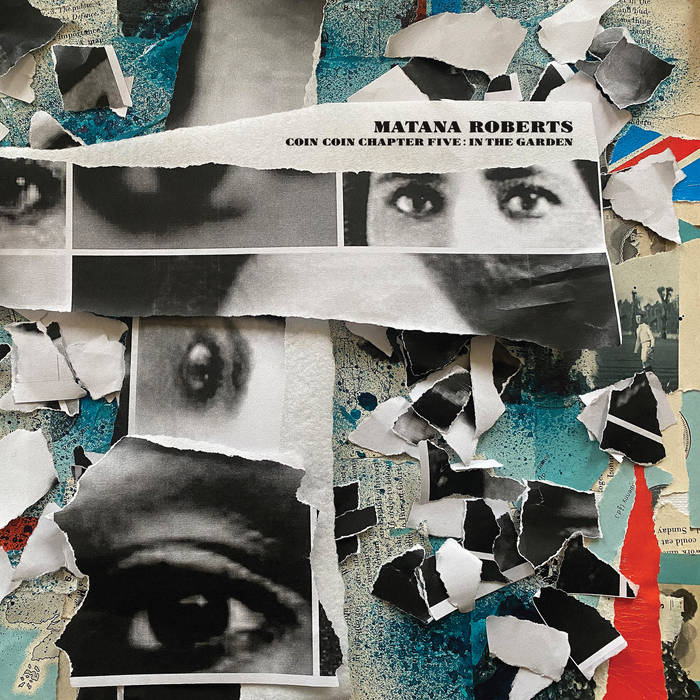Matana Roberts – COIN COIN Chapter Five: In the Garden 2×10″ Constellation
$ 29,98 Original price was: $ 29,98.$ 17,99Current price is: $ 17,99.
Coin Coin Chapter Five: In the garden… is the latest instalment in composer, improviser, saxophonist, and visual artist Matana Roberts’ visionary project exploring African-American history through ancestry, archive and place. Weaving together elements of jazz, avant-garde composition, folk and spoken word, Roberts tells the story of a woman in their ancestral line, who died following complications from an illegal abortion. At a time when reproductive rights are under attack, her story takes on new resonance. “I wanted to talk about this issue, but in a way where she gets some sense of liberation,” Roberts explains. By unpacking family stories and conducting extensive research in US public archives, Roberts has created a rounded portrait of a woman who is, as their lyrics put it, “electric, alive, spirited, fire and free.”
Each part of Coin Coin explores radically different musical settings, from the free jazz and post-rock eruptions of Chapter One to the solo noise collage of Chapter Three. Featuring a new ensemble steeped in jazz, improvisation, new music and avant-rock, helping to expand the project’s existing sonic palette, Chapter Five is no exception. Roberts is joined by fellow alto saxophonist Darius Jones, violinist Mazz Swift (Silkroad Ensemble, D’Angelo), bass clarinettist Stuart Bogie (TV On The Radio, Antibalas), alto clarinettist Matt Lavelle (Eye Contact, Sumari), pianist Cory Smythe (Ingrid Laubrock, Anthony Braxton), vocalist/actor Gitanjali Jain and percussionists Ryan Sawyer (Thurston Moore, Nate Wooley) and Mike Pride (Pulverize The Sound, MDC). The late, great trumpeter jaimie branch, who was due to play on the album, receives a credit for “courage”. The album is produced by TV On The Radio’s Kyp Malone, who also contributes synths.
As a composer, Roberts draws upon strategies associated with the post-war avant-garde, including John Cage and Fluxus member Benjamin Patterson’s conceptual approaches to scoring and performance. The immersive work of Maryanne Amacher, in which “sound and the body almost collaborate” is another key influence. “That is the foundation for me of the Coin Coin work,” they explain. “It’s not just the alto saxophone as an instrument placed in the jazz canon, it’s the alto saxophone as an instrument that can be utilised to affect the body.”
Listeners will be struck by Roberts’ ability to mould diverse sounds into a cohesive whole. The spoken word passages are accompanied by driving modal jazz on “how prophetic”, minimalist synth loops on “enthralled not by her curious blend” and cantering folk forms on “(a)way is not an option”. These are interspersed with instrumental pieces that range from avant-garde abstraction and squalling free jazz, to solo saxophone reflections and Mississippi fife and drums blues. There’s a further evocation of American roots music in the powerful group vocal arrangement of “but I never heard a sound so long”, adapted by Roberts from the plantation lullaby “All The Pretty Horses.”
While this new chapter of Coin Coin focusses on a female-identified protagonist, others haven’t (Chapter Three being from the perspective of a male ancestor) and Roberts intends for future chapters to continue to cover the breadth of the gender spectrum, as well as their Native American heritage. “I’m proud that people say that the Coin Coin work speaks of a woman’s story. But I want to make sure that it retains its inclusivity, because what we look like is not always what you see.” This reflects Roberts’ own experiences as a queer person of colour. For the remaining chapters of Coin Coin, Roberts will continue exploring identity and ancestry. “Expect it to keep heading towards a liberation of the human spirit.”
Fast Shipping and Professional Packing
We offer a broad range of shipping options due to our long-running partnerships with UPS, FedEx and DHL. Our warehouse employees will pack all goods to our exacting requirements. Your items are carefully inspected and secured properly prior to shipping. We ship to thousands of customers every day from all over the world. This demonstrates our dedication to becoming the largest online retailer in the world. Warehouses and distribution centres can be located in Europe as well as the USA.
Note: Orders that contain more than one item will be assigned a processing date depending on the item.
We will carefully examine all items before sending. Today, the majority of orders will be shipped within 48 hours. The expected delivery time will be between 3 and 7 days.
Returns
Stock is dynamic. It's not completely managed by us, since we have multiple entities, including the factory and the storage. The actual inventory can fluctuate at any time. It is possible that the stocks could be depleted after your order has been processed.
Our policy lasts 30 days. If you haven't received the product within 30 days, we're not able to issue a refund or an exchange.
To be eligible for a refund the product must be unopened and in the same state as when you received it. The item must be returned in its original packaging.
Related products
Vinyl
Vinyl
Acid Mothers Temple & Melting Paraiso U.F.O. – Hallelujah Mystic Garden Part 2 LP Important Records
Vinyl


































